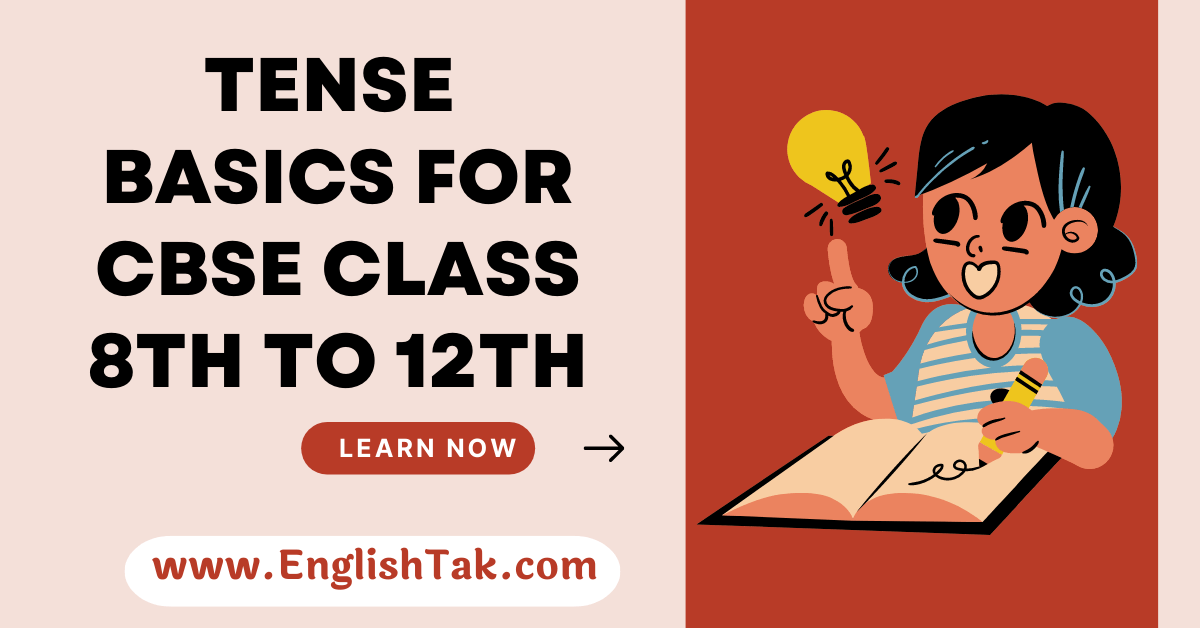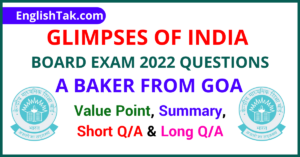![]()
Tense Basics For CBSE Class 8th to 12th
In today’s post you will get Time & Tense Notes [Tense Basics For CBSE Class 8th to 12th] which will be important for CBSE classes 8th to 12th. If you read this post attentively, I believe, Let me assure that the confusion you have about Time and Tense will be completely vanished. In this post, you will get the basics of Tense, which will help to differentiate Time and Tense. In the next post, you will get the Present Simple Tense in great details. If you love this post, please share this post with your friends as much as possible.
आज की इस पोस्ट में आपको Time & Tense के Notes मिलेंगे जो CBSE Class 8th से 12th के लिए महत्वपूर्ण होंगे। अगर आप इस पोस्ट को ध्यान से पढ़ेंगे तो मेरा मानना है और मैं आपको विश्वास दिलाता हूँ कि Time और Tense को लेकर जो भ्रम है, वह पूरी तरह से दूर हो जाएगा। इस पोस्ट में, आपको Tense की Basics Concepts मिलेंगी, जो Time और Tense में अंतर समझने में मदद करेंगी। अगली पोस्ट में आपको Present Simple Tense के बारे में विस्तार से जानकारी मिलेगी। अगर आपको यह पोस्ट अच्छी लगी हो तो कृपया इस पोस्ट को अपने दोस्तों के साथ ज्यादा से ज्यादा शेयर करें।
INTRODUCTION
The word Tense has been derived from the Latin Word ‘TEMPUS’ which means ‘TIME’. Tense is a grammatical term. Tense refers to a form of the verb that indicates time.
Time is a universal, non-grammatical concept with three divisions – Past, Present and Future; by tense we understand the correspondence between the form of the verb and our concept of time. When making a statement it is essential to indicate whether a situation exists now, existed in the past or is likely to exist in the future.
Must Read…
DEFINITION
Tense can be defined as follows :
A tense can be defined as that form of a verb which indicates the time and the state of an action or event.
KINDS OF TENSE
There are primarily two tenses in the English language but for convenience we use three tenses corresponding to the three main divisions of time.
PRESENT, PAST & FUTURE
1. Present tense – The present tense indicates that the action is done at the present time; as,
Examples:
The sun rises in the East and sets in the West.
I do not know you.
She knows us very well.
2. Past tense – The past tense indicates that the action took place in the past; as,
Examples:
I went to Agra last month.
Rohan did this work for us.
We won the final match last year.
3. Future tense – The future tense indicates that the action will take place in the future; as,
Examples:
I shall go to Agra tomorrow.
He will write a book on English.
They will be here within an hour.
Each of these three tenses has subdivisions to show continuity or completeness of the action and the time.
1. Indefinite (Simple)
2. Continuous (incomplete)
3. Perfect (Complete)
4. Perfect Continuous (complete and incomplete)
Suggested For You | |
| Grammar | EnglishTak YouTube Channel |
| Spoken English | Videos |
| Ranjan Sir Blog | Join Our WhatsApp Group |
Tense Basics For CBSE Class 8th to 12th
1. Indefinite (Simple) – It denotes that an action takes place regularly, took place regularly or took once and will take place once or repeatedly in future.
Examples:
I write books on English.
I wrote a book on English.
I shall write a book.
Note – The action in present, past or future time is mentioned simply without anything being said about the completeness or incompleteness of the action.
2. Continuous (Imperfect) – It shows that an action (in present, past or future) is/was still continuing or not yet completed.
Examples:
She is writing a book on English.
She was writing a book on English.
I shall be writing a book on English.
Must Read…
3. Perfect – It denotes that the event (in present, past or future) is in a completed or perfect state- present, past or future.
Examples:
I have written a book on English.
I had written a book on English.
I shall have written on English by the end of this month.
4. Perfect Continuous – It is used to show the completion and incompletion state of action in the present, past future.
Examples:
I have been writing.
I had been writing.
I shall have been writing.





